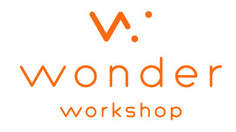
It also implements a 3-year scope & sequence, CSTA & ISTE alignment, Common Core & NGSS Standards, and Code.org Connections. Students in middle school want to express themselves more independently and feel in control of their learning, which is why teachers are integrating more student voice and choice in their classrooms. At the same time, teachers want to introduce students to multiple programming paradigms when teaching computer science, preferably through personal, meaningful projects and scaffolded activities that integrate multiple cross-curricular subject matters. They also want project-based learning and design thinking so that students can become independent learners.
The curriculum also encourages students to follow the design process from ideation to reflection, allowing them to express their unique voice in their learning. In addition, teachers are supported with tools to implement the curriculum with ease, including a 12-hour online professional development course.
“Our mission with Cue robots is to give students choice and voice in their learning, and middle school teachers the tools to implement open-ended, project-based learning projects that support real-world experience and 21st century skills,” said Vikas Gupta, co-founder and CEO of Wonder Workshop. “We can’t wait to see what students create as they discover their own paths of learning with Cue.”
The applied robotics curriculum for Cue robots offers three separate units: Creative Writing, Game Design and Innovation. The curriculum includes design thinking projects to encourage student expression, as well as features like voice recording, multiple robot personas and in-app stickers to allow students to express their choice and creativity.
In addition to the larger curriculum, Wonder Workshop is also adding Teach Wonder for Cue. This new Teach Wonder program will provide middle school teachers with professional development to support a state-of-the-art coding and robotics education, as well as empower teachers to understand not only the HOW but the WHY of computer science as they integrate coding and robotics skills into their everyday classrooms.
Wonder Workshop’s Cue robots can be programmed on popular devices used by schools today, including Chromebooks, Windows 10, iOS and Android devices. Learn more about Wonder Workshop’s middle school solution at www.makewonder.com/cue-middle-school.












